Study to Learn, Not to Score: A Better Education Guide
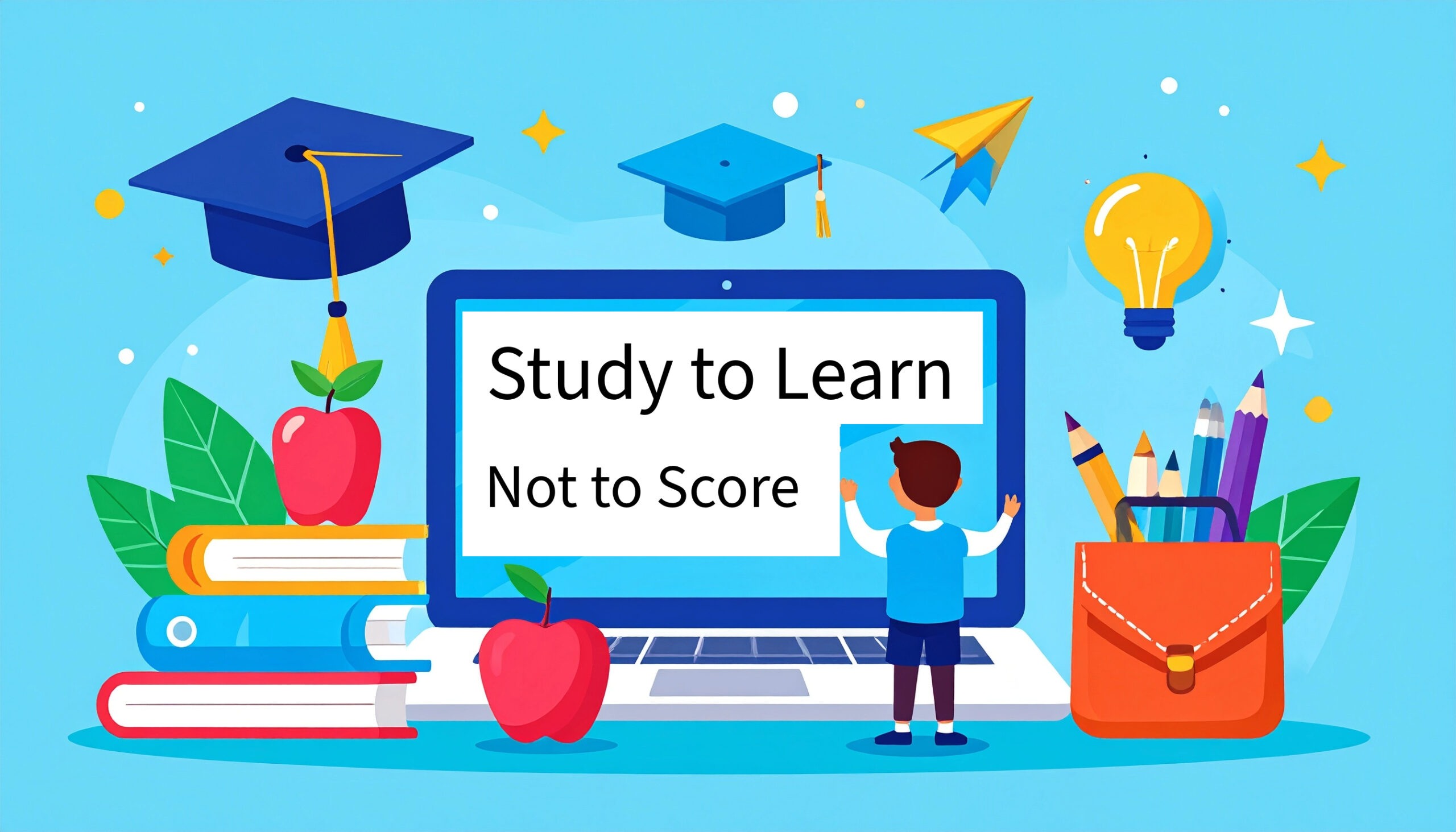
Many students focus too much on getting high grades. But this approach might be stopping you from reaching your full potential. Learn how changing your focus to learning can lead to better education and success by Study to Learn.

Ever thought there’s a better way to study than just memorizing? The key is understanding the difference between studying to learn and studying to score. Let’s dive into how you can change your study habits and unlock education’s true power.
Key Points :
- Effective studying involves active engagement, not just passive re-reading or highlighting.
- Distribute your practice over short, regular study sessions for better long-term retention.
- Organize your materials by topic and use your syllabus as a guide to stay on track.
- Understand the Study Cycle: preview, attend class, review, study, and check understanding.
- Use a daily task list to include regular study sessions for each of your classes.
Understanding the Shift from Scoring to Learning Mindset
Academic success is no longer just about grades. Today, in study we focus more on a learning mindset. This change opens up new ways to achieve study success. It makes learning more meaningful and rewarding.
Breaking Free from Grade-Centric Thinking
Grades used to be everything. But now, we see learning as more than just getting good grades. This shift helps students enjoy learning and understand things better. and beneficial for future scope.
Benefits of Learning-Focused Approach
Switching to a learning mindset has many benefits. Students learn more and remember things better. They also become better at solving problems and thinking critically.
Common Misconceptions About Study Success
Many students still think studying means just reading or memorizing and Score good but one should study to Learn. But study success is about being active and learning from mistakes. This helps students reach their full potential.
The move from focusing on grades to a learning mindset changes everything. It makes learning more enjoyable and opens up new possibilities. Students can explore and learn for a lifetime.
Study to Learn, Not to Score: The Foundation of Better Education
In India, education often focuses on getting good grades. This has led to a culture of just memorizing, not really understanding. To change this, we need to focus more on learning well.
Active learning is key. Students should not just read and memorize. They should engage more by testing themselves, making concept maps, and joining class discussions. This way, they learn deeply and think critically.
- Use self-testing and spaced practice to remember better.
- Make visual aids and concept maps to understand complex stuff.
- Join workshop-style classes for hands-on learning.
- Ask teachers questions to fill in knowledge gaps.
- Study over time to remember things longer.
- Plan your study time well to reach your goals.
By focusing on learning, students can reach their full potential. It’s time to move away from just getting good grades. We should focus on understanding and using what we learn.
| Effective Learning Technique | Utility Assessment |
| Practice Testing | High |
| Distributed Practice | High |
| Elaborative Interrogation | Moderate |
| Self-Explanation | Moderate |
| Interleaved Practice | Moderate |
| Summarization | Low |
| Highlighting | Low |
| Keyword Mnemonic | Low |
| Imagery Use for Text Learning | Low |
| Rereading | Low |
“The goal of education is not to increase the amount of knowledge but to create the possibilities for a child to invent and discover, to create [their] own potential.” – Jean Piaget
To improve education in India, we must focus on learning strategies, not just grades. By encouraging active learning, critical thinking, and a love for learning, we can help students reach their full potential.
“The goal of education is not to increase the amount of knowledge but to create the possibilities for a child to invent and discover, to create [their] own potential.” – Jean Piaget
Essential Study Techniques for Deep Learning
To really get a subject, we must move beyond just high scores. We need to understand and keep the material. Deep learning techniques help us do this. By using active learning, making good study guides, and self-testing, we can reach our academic peak.
Active Engagement Methods
Just reading and highlighting isn’t enough. We need to actively learn. This means making concept maps, talking to ourselves about key ideas, and asking deep questions.
Creating Effective Study Guides
Making your own study guides can change the game. Organize your notes by topic, add practice problems, and use pictures. This makes learning stick and saves time.
The Power of Self-Testing
Testing yourself often, with flashcards or retrieval practice, is key. It shows what you don’t know and makes your brain stronger. This leads to better memory over time.
It’s important to see studying as a way to learn, not just to pass. Using these study methods can unlock our full potential. This sets us up for success for years to come.
| Study Technique | Description | Benefits |
| Active Engagement | Techniques like creating concept maps, explaining concepts aloud, and formulating questions. | Keeps the mind engaged, promotes deeper understanding, and enhances retention. |
| Effective Study Guides | Organizing materials by topic, including practice problems, and incorporating visual aids. | Improves efficiency, reinforces understanding, and provides a structured learning experience. |
| Self-Testing | Using flashcards, retrieval practice, and interleaving study techniques. | Identifies knowledge gaps, strengthens neural pathways, and enhances long-term retention. |

“The key is to approach studying with a learning mindset, not just a scoring mindset.”
Time Management and Study Planning Strategies
Effective time management and study planning are key to success in school. Breaking down study into smaller parts and making a study plan helps us work better. Let’s look at some strategies to manage our time and plan studies well.
- Create a Study Timetable: A detailed study timetable can change the game. It lets us set aside specific times for each subject. This keeps us organized and on track.
- Utilize a Study Diary: A study diary is a great tool. It helps us keep track of deadlines and important dates. This way, we can plan our time better.
- Prepare Materials Beforehand: Preparing our study materials the night before saves time in the morning. It helps us start studying efficiently.
- There are other techniques also which will help to Study with Planning Click “SQ3R Method” to read.
During exam times, we need to plan even more carefully. Here are some tips:
- Focusing on Short, Targeted Study Sessions: Short, focused study sessions help us remember better. They make us more productive.
- Employing the VU Block Model: This method lets us focus on one subject at a time. It helps us understand the material better.
- Spacing Out Studying: Studying over several days or weeks improves our memory. It helps us understand subjects better.
By making and sticking to a study schedule, we can manage school work and other activities. This balanced approach helps us reach our full potential and succeed academically.
“Effective time management is not about doing more, it’s about doing the right things.” – Cal Newport
Building these skills takes time, but it’s worth it. By focusing on what’s important, avoiding distractions, and balancing our schedule, we can excel in our studies.

Creating the Optimal Learning Environment
Creating the right study environment is key for learning well and doing well in school. Studies show that students in bright classrooms do 25% better than those in dark ones. Also, comfy chairs help you stay focused and motivated, letting you learn more.
Setting Up Your Study Space
Find a quiet, bright spot without distractions. Libraries or university study areas are good if your home isn’t right. Try studying at different times to see when you focus best, whether morning or night.
Managing Digital Distractions
Today, digital distractions can mess up your study time. Turn off your phone and use apps like Freedom or FocusMe to block unwanted sites. This way, you can stay focused and learn better.
The Role of Background Noise
Research is still going on about background noise and learning. Some like classical music or ambient sounds to help them focus. Others prefer quiet. Try different sounds to see what helps you study best.
Pros and Cons
Pros of Learning-Focused Education:
- Better Retention: Active engagement helps in long-term memory retention.
- Critical Thinking: Encourages problem-solving and analytical skills.
- Enjoyable Learning: Makes studying more interesting and fulfilling.
- Lifelong Benefits: Builds skills that are applicable beyond school.
- Individual Growth: Focuses on understanding, not competition.
Cons of Learning-Focused Education:
- Time-Intensive: Requires more effort and planning than passive studying.
- Misalignment: Current grading systems may not reward learning-focused methods immediately.
- Resource-Dependent: Access to hands-on tools and environments may be limited.
- Cultural Shift Needed: Challenges traditional grade-centric mindsets.
What are the key elements of effective studying?
Good studying means more than just reading or highlighting. It’s about actively engaging with the material. Try making study guides, teaching out loud, and finding personal examples. Also, create concept maps and organize your notes by topic.
ollow the Study Cycle: preview, attend class, review, study, and check your understanding. This helps you stay on track.How can we shift our focus from grades to understanding concepts?
Focus on learning, not just grades. Use active studying methods like making study guides and teaching concepts. Personal examples and concept maps also help.Don’t confuse reading with studying. Avoid just memorizing. Instead, test yourself and use active recall for better learning.
What are some effective study techniques to improve understanding?
Instead of just memorizing, focus on understanding. Use self-testing and spaced repetition. Create visual aids like concept maps to simplify complex info.Join workshop-style classes for hands-on learning. Ask teachers questions and clarify doubts. Study in short sessions over time for better retention.
How can we implement active engagement methods in our studying?
Use active methods like making concept maps and explaining concepts. Create study guides with practice problems. Use flashcards for self-testing.Study in short sessions and mix up practice questions. This improves your grasp of different concepts.
What are some time management and study planning strategies?
Make a study plan with manageable chunks. Use a diary for deadlines. Prepare the night before for class.Have focused study sessions, especially during exams. Use the VU Block Model for flexible learning. Study over several days for better retention.
How can we create an optimal learning environment?
Find a quiet, well-lit spot for studying. Libraries or university study spaces are good alternatives. Experiment with study times to find your best focus.Manage digital distractions by turning off phones. Use apps to block non-essential apps. Some prefer background noise, while others like silence.



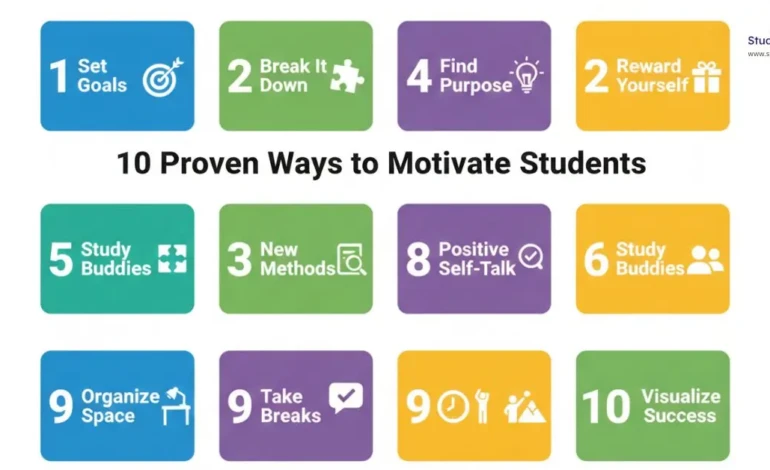


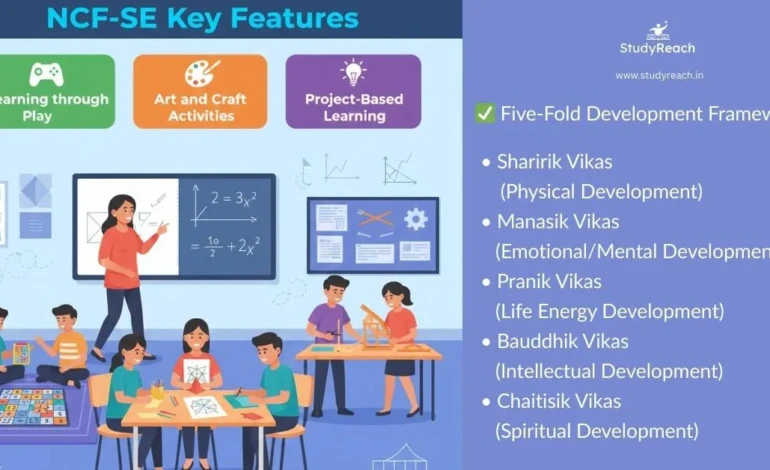
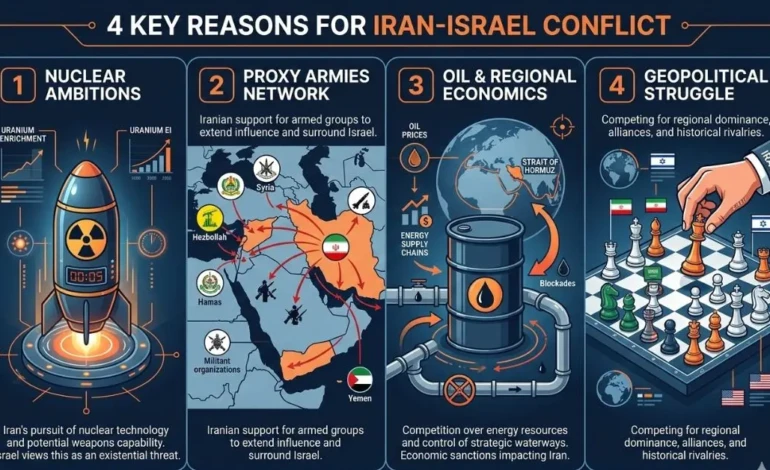

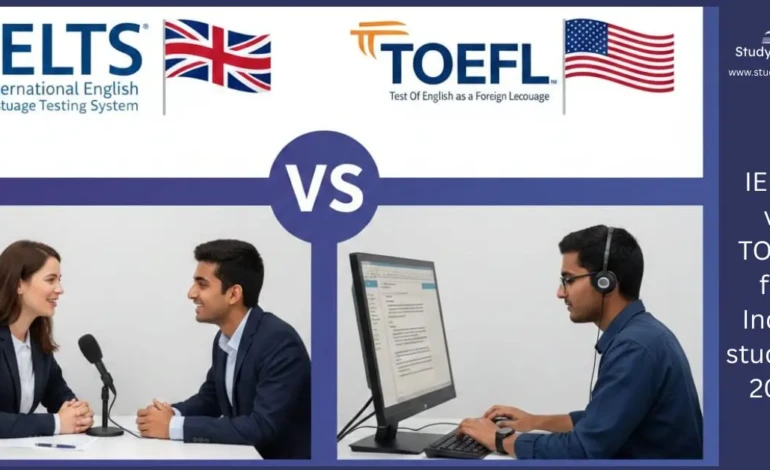
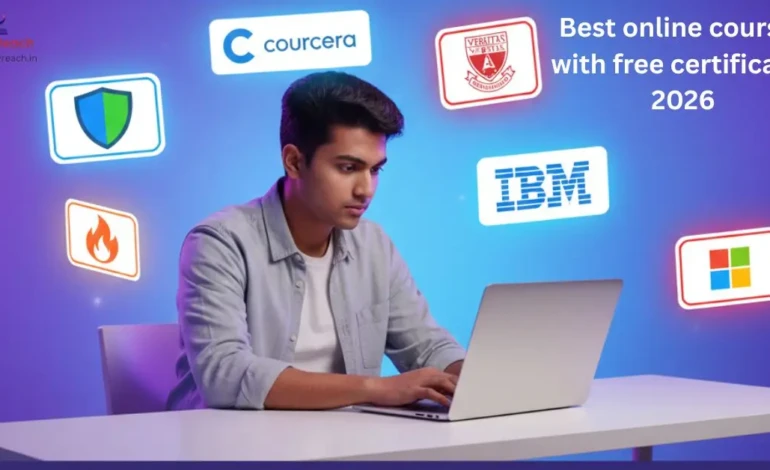
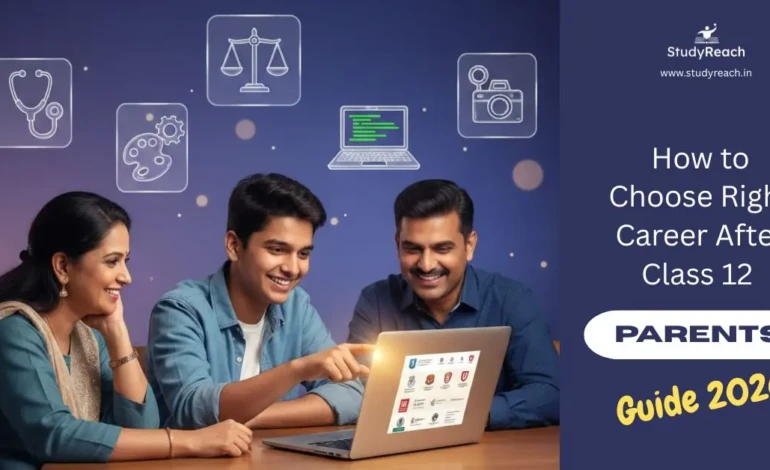


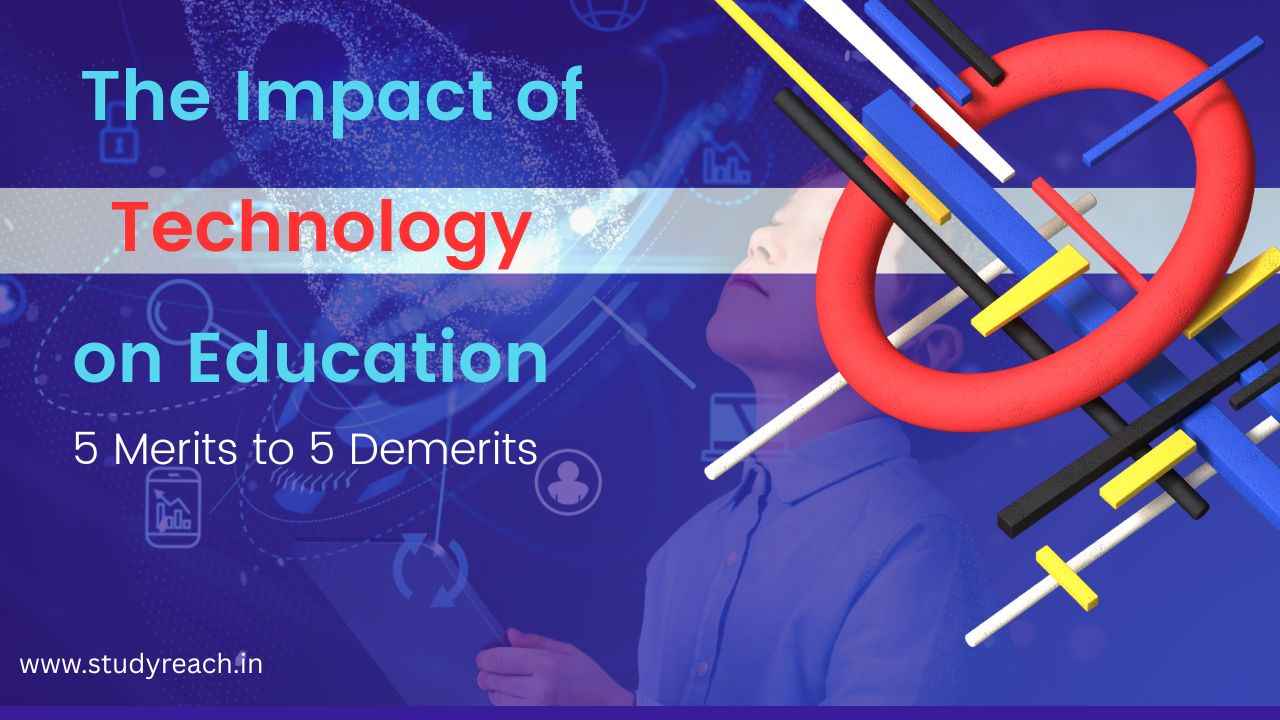
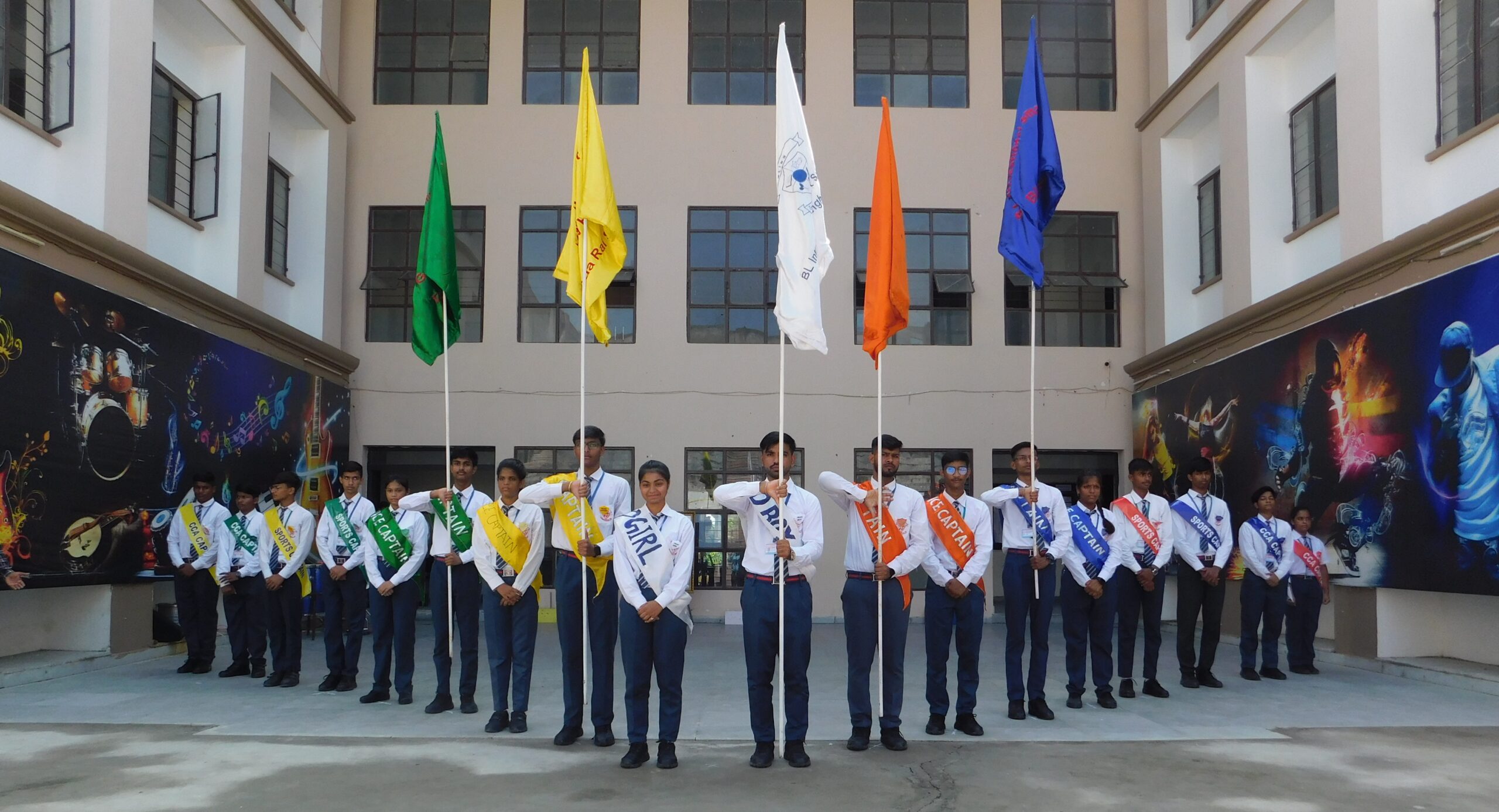
3 Comments
[…] Study to Learn, Not to Score: A Better Education Guide […]
[…] “Study Smarter, Not Harder: 4 ways to Transform Notes with Colour” […]
[…] Study to Learn, Not to Score: A Better Education Guide […]